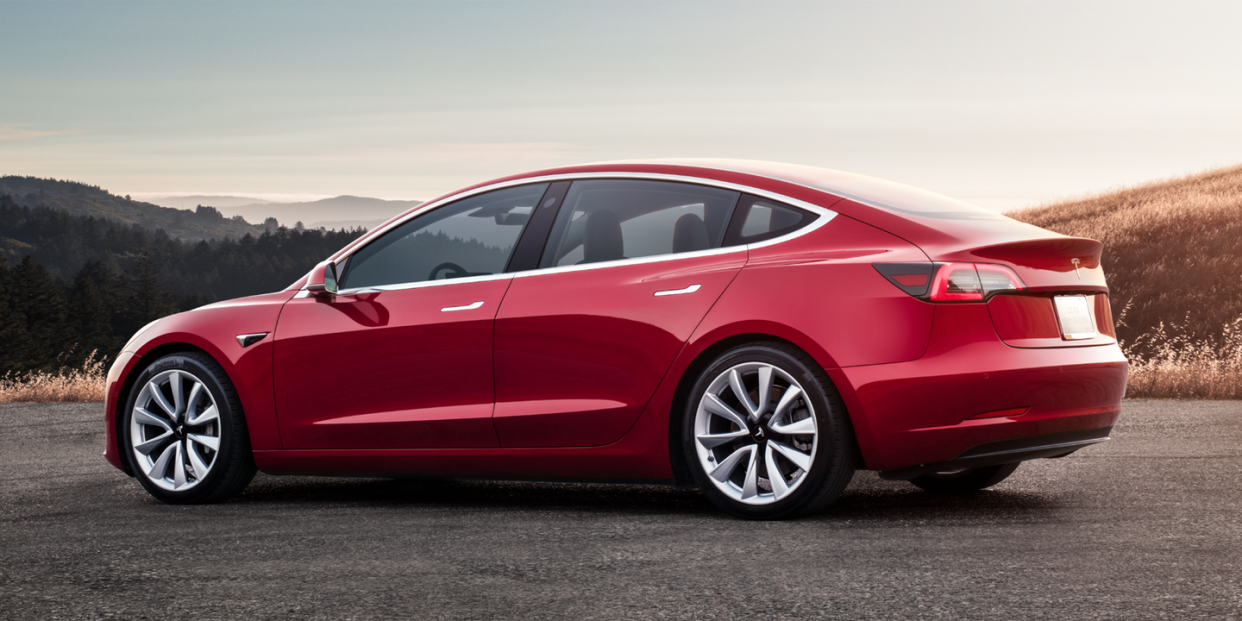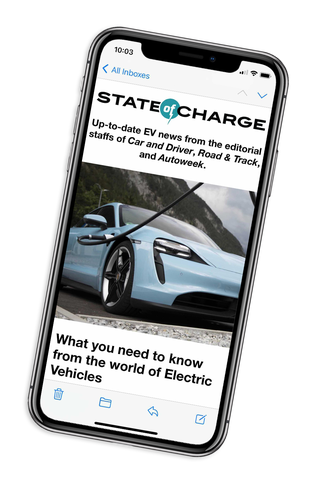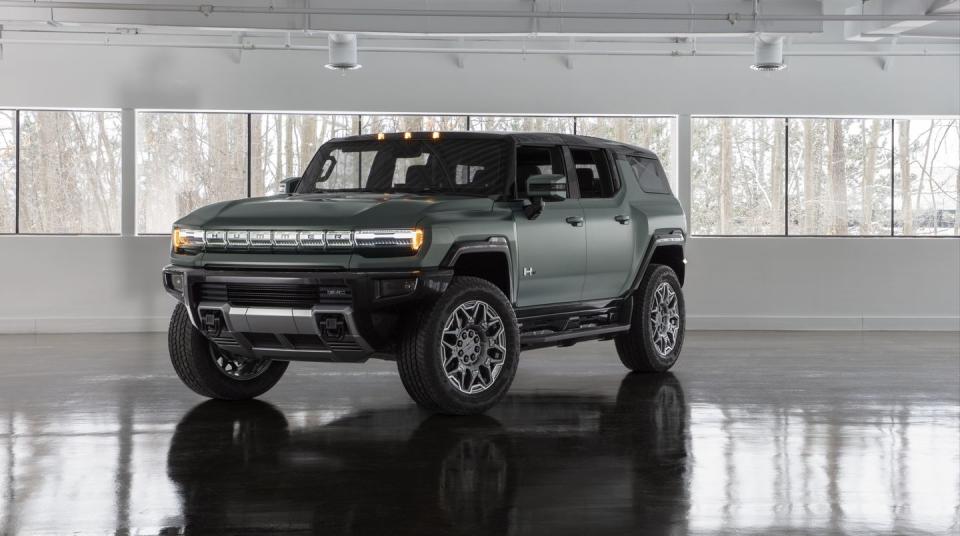Biden Plan Calls for $100B in New EV Customer Rebates

- Oops!Something went wrong.Please try again later.
As we reported, President Biden’s American Jobs Plan calls for a $174 billion investment to “win the EV market.”
This includes point-of-sale rebates and tax incentives, and a national network of half a million EV chargers by 2030.
Now we know $100B of it would go to new customer rebates, but might only go to less-expensive EVs.
When we reported on President Biden’s March 31 American Jobs Plan, we said that the proposed $174 billion “to win the EV market,” including point-of-sale rebates and tax incentives, and a national network of half a million EV chargers by 2030.
“The fine print on those rebates and tax credits are forthcoming,” we wrote. Now we’re starting to see some of the “fine print.”

According to a U.S. Transportation Department email sent to congressional staff and seen by Reuters, the $174 billion proposal calls for $100 billion in new consumer rebates and $15 billion to build 500,000 new charging stations. On the surface the new EV rebates could be a big boost to, say, Tesla and General Motors, but because the two automakers have sold more than 200,000 zero-emission models, they no longer qualify for $7,500 tax credits.
The White House declined to say how the $100 billion would be distributed or how much the grants will be, but Michigan Senator Debbie Stabenow and Representative Dan Kildee told Reuters they have been working on a bill to expand the EV tax credit.
The problem for GM and Tesla is, Kildee said he wants to skew the credit in favor of more-affordable vehicles with longer range, to “democratize the electric vehicle market.” He said they are “looking at ways to make the credit more accessible to middle- and lower-income families, potentially even making the credit refundable.”
That helps the Bolt EV and Bolt EUV and Tesla Model 3, but not the Hummer EVs, Cadillac Lyriq, Tesla Model S, Model Y… You get the idea.

Kildee told Reuters that EVs are “where the market is going—full stop. The only question that we have to answer is are these going to be vehicles made by American workers.” Kildee said they could also introduce a credit for used EV purchases.
Stabenow said it was important to give automakers incentives to produce electric vehicles in the United States.

“China has committed $100 billion to grab this market—both battery cell production but also in other component parts of electric vehicles,” Stabenow said. “We better take it seriously.”
Reuters points out that in 2019 Senate Democratic Leader Chuck Schumer proposed $392 billion in subsidies for consumers to trade in gasoline-powered vehicles at least eight years old for an EV, plug-in hybrid, or fuel-cell car.
We’re sure many details have yet to be worked out. Meanwhile, as we reported several days ago a group of 10 U.S. senators called on Biden “to set a date by which new sales of fossil-fuel vehicles will end entirely.” Another group, with 70 House Democrats aboard, wants 60 percent of new passenger car and truck sales to be zero emission by 2030. California Gov. Gavin Newsom pledged to end fossil-fuel sales by 2035, and the state’s two U.S. senators, Alex Padilla and Dianne Feinstein, recently urged Biden to set his own date.
Log into the comments and tell us what you think of these proposals.

